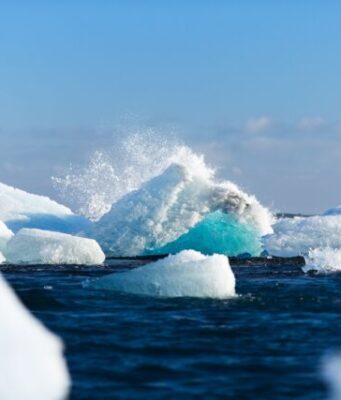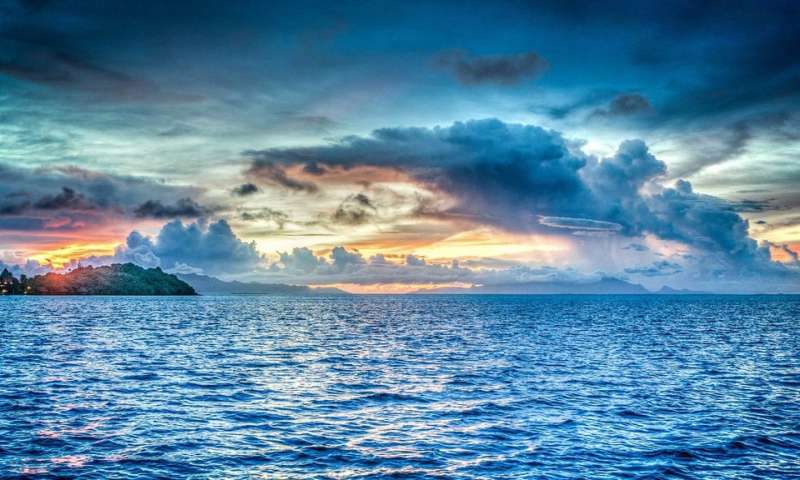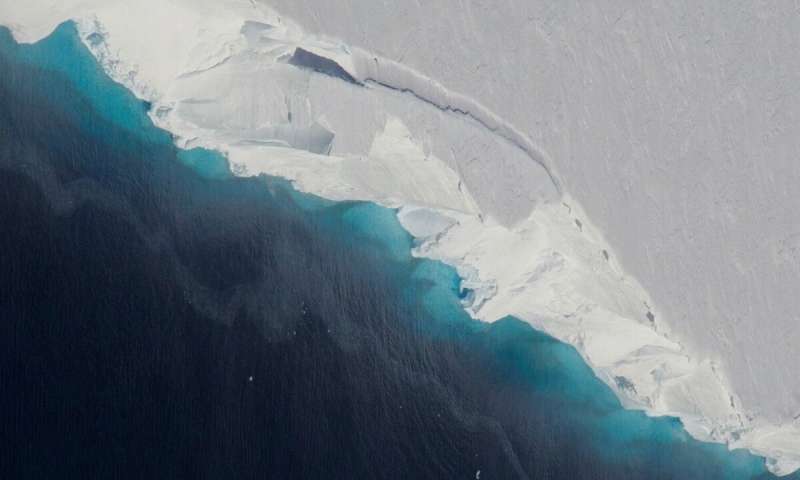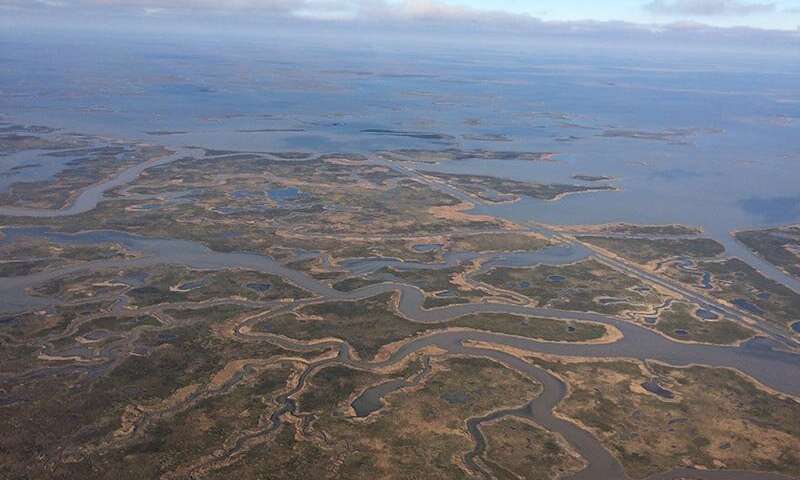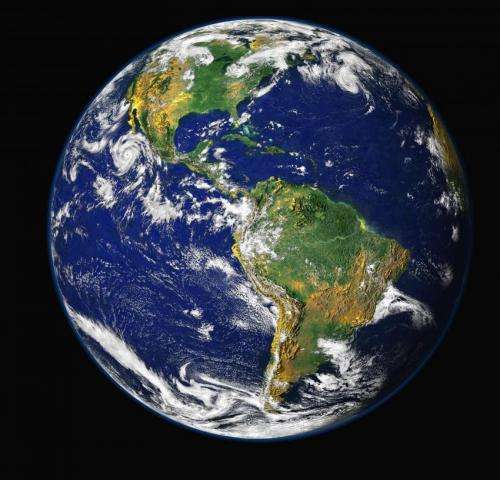Climate change is causing significant changes to phytoplankton in the world's oceans, and a new MIT study finds that over the coming decades these changes will affect the ocean's color, intensifying its blue regions and its green ones. Satellites...
A gigantic cavity—two-thirds the area of Manhattan and almost 1,000 feet (300 meters) tall—growing at the bottom of Thwaites Glacier in West Antarctica is one of several disturbing discoveries reported in a new NASA-led study of the disintegrating glacier....
A new Tulane University study questions the reliability of how sea-level rise in low-lying coastal areas such as southern Louisiana is measured and suggests that the current method underestimates the severity of the problem. This research is the focus...
An analysis of satellite data has revealed global patterns of extreme rainfall, which could lead to better forecasts and more accurate climate models.
Extreme rainfall—defined as the top five percent of rainy days—often forms a pattern at the local level,...
Despite a scientific consensus, citizens are divided when it comes to climate change, often along political lines, and scholars want to better understand why.
"We were interested in understanding the clear political divide in the U.S. on climate change beliefs...
Some ecologists believe that species richness is positively related to ecosystem productivity, while others conclude that the relationship is bell-shaped or they are unrelated. Using big data, Purdue University scientists now know which theory is correct—all of them.
Biodiversity-productivity relationships...
Global carbon emissions reached a record high in 2018, rising by an estimated 3.4 percent in the U.S. alone. This trend is making scientists, government officials, and industry leaders more anxious than ever about the future of our planet....
The population of Antarctic krill, the favourite food of many whales, penguins, fish and seals, shifted southward during a recent period of warming in their key habitat, new research shows.
Antarctic krill are shrimp-like crustaceans which occur in enormous numbers...
Greenland is melting faster than scientists previously thought—and will likely lead to faster sea level rise—thanks to the continued, accelerating warming of the Earth's atmosphere, a new study has found.
Scientists concerned about sea level rise have long focused on...
Future generations face an environmental "time bomb" as the world's groundwater systems take decades to respond to the present day impact of climate change, scientists warned on Monday.
Found underground in cracks in soil, sand and rock, groundwater is the...
A rapid rise in temperature on ancient Earth triggered a climate response that may have prolonged the warming for many thousands of years, according to scientists.
Their study, published online in Nature Geoscience, provides new evidence of a climate feedback...




